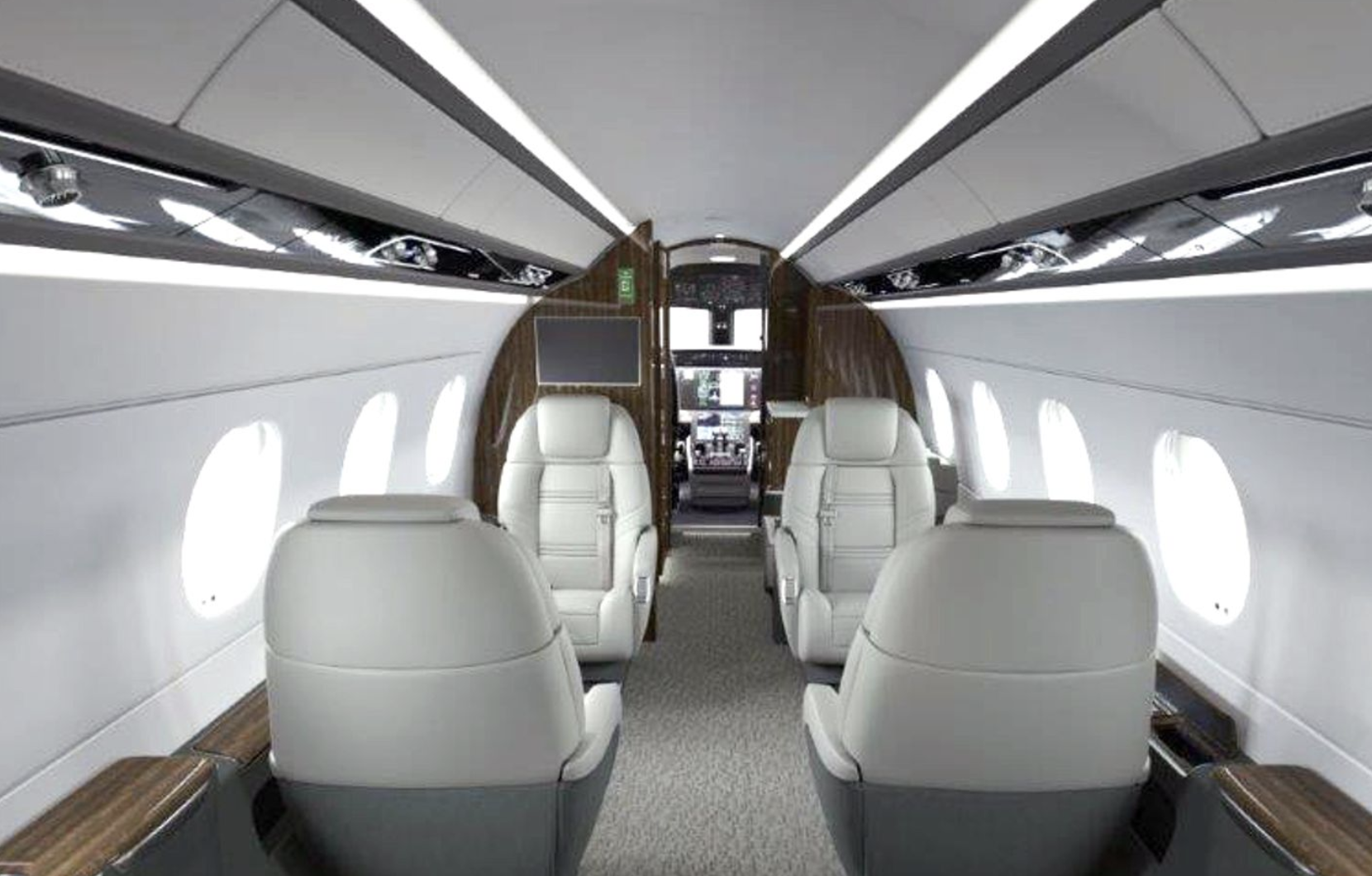JSX founder and CEO Alex Wilcox told investors attending today’s Jefferies Business Aviation Summit that public charter JSX is bridging the gap between airlines and private jets.
“We’re not fish or foul,” he said.
Instead, the 2015 start-up combines the cost-effectiveness of flying scheduled airlines with the convenience and time savings that are the hallmarks of private aviation.
“We offer the ability to show up at the terminal, which in our case is a private lounge or FBO 20 minutes before the flight, get on and go,” he said.
JSX fleet
JSX offers scheduled flights on Embraer 145 and 135 aircraft, with customers booking seats online, just as they do with the airlines.
The aircraft are configured with up to 50 seats when flown by the regional airlines.
JSX only has 30 seats.
In its 145s, they are in a 1×1 configuration, with the shorter 135s in a 1×2 layout.
In both cases, passengers get 36 inches of legroom, similar to first-class passengers on domestic carriers.
The 30-passenger capacity is the maximum under public charter rules.
Customers get free checked luggage, drinks, snacks, and Starlink WiFi.
JSX stands for a joyful, simple experience.
JSX currently has 50 aircraft flying, and it acquired another 25 that were in storage and still waiting to enter service.
“We’re adding a couple of airplanes a quarter,” he told attendees.
Airplane cabins are renovated before entering service, overhead bins are removed, and lighting and sidewalls are changed to provide a more spacious feeling.
He called the regional airlines’ configuration “a gerbil tunnel.”
Wilcox said JSX attracts private jet users when its schedule fits and when they are traveling alone.
Because JSX has low aircraft utilization, it can add flights when needed and provides the opportunity to serve markets seasonally.
“We bought the airplanes (at a low price). We don’t have a huge note on the airplanes, so we only have to fly them when it makes sense,” Wilcox said.
In many cases, JSX uses private airports, such as Opa Locka, Scottsdale, Concord, Oakland, Dallas Love Field, and Burbank.
About 10% of revenues are from full charters.
Most customers are HNW individuals who don’t care about frequent flyer miles and value experience.
“Compared to a private jet, it’s cheap. Compared to Spirit Airlines, it’s expensive,” Wilcox quipped.
In terms of future aircraft, JSX is hedging its bets with orders for over 300 hybrid aircraft from three manufacturers, with deliveries as much as a decade in the future.
JSX customer mix
Current customers are primarily discretionary.
However, American Airlines’ recent blunders in the corporate travel market have opened opportunities in the business travel segment.
“Thanks to another Dallas-based company, there are a lot of corporate salespeople available right now who are helping us a lot,” he said.
JSX counts JetBlue, United Airlines, and Qatar Airways as investors.
Fares range from $159 under its current fare sale to over $2,000.
It prices flights depending on peak versus off-peak periods, supply, and demand.
Wilcox said the company has no debt.
He said it gets significant fuel discounts and seeks a quick return on new routes.
“We don’t get emotionally attached to the places we fly,” he said.
He pointed out that it entered Nashville before leaving in less than six months.
Wilcox said JSX is delivering double-digit EBITDA.
The founder cut his teeth working at Virgin Atlantic Airways before becoming the first employee at JetBlue under aviation legend David Neeleman.












